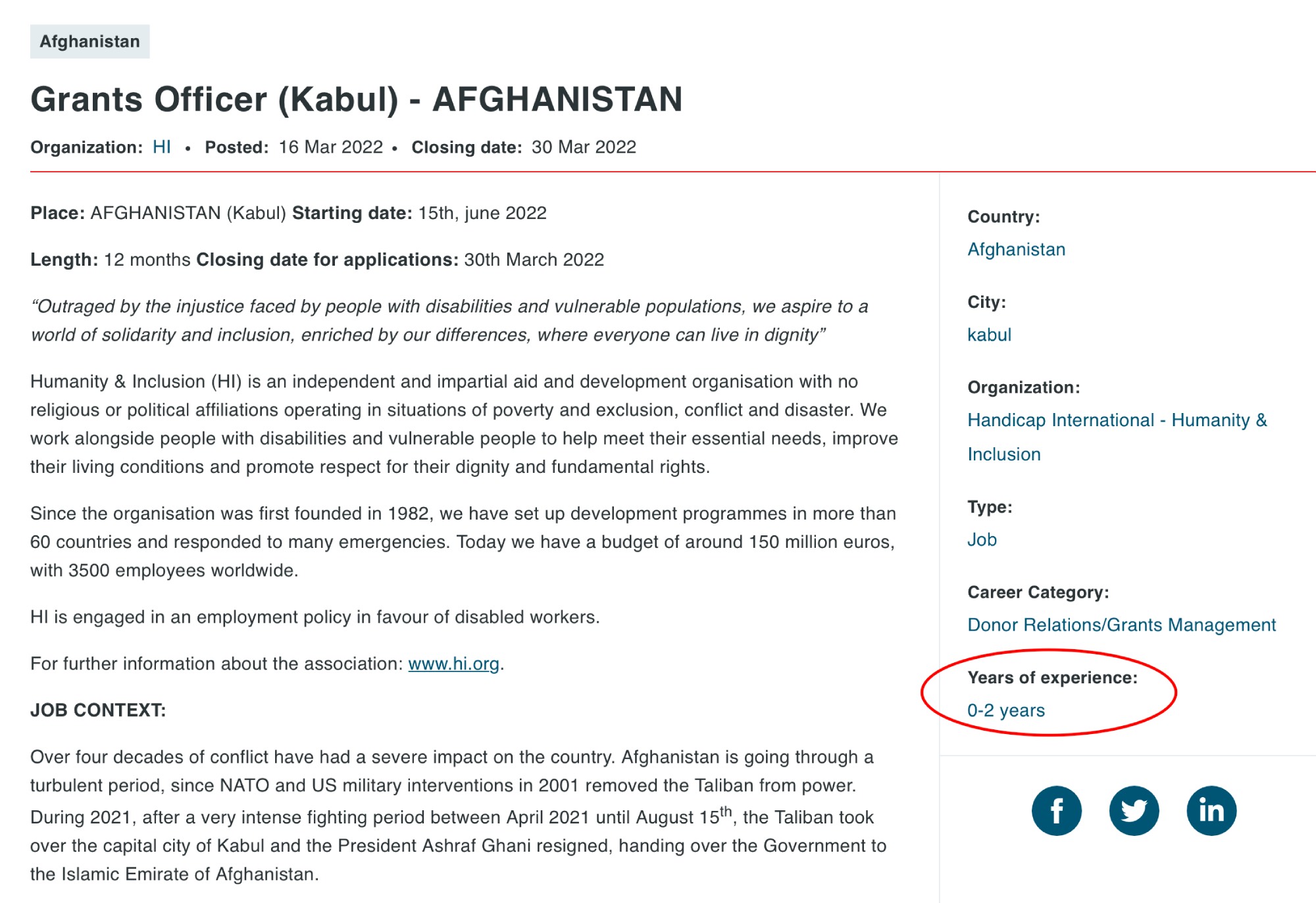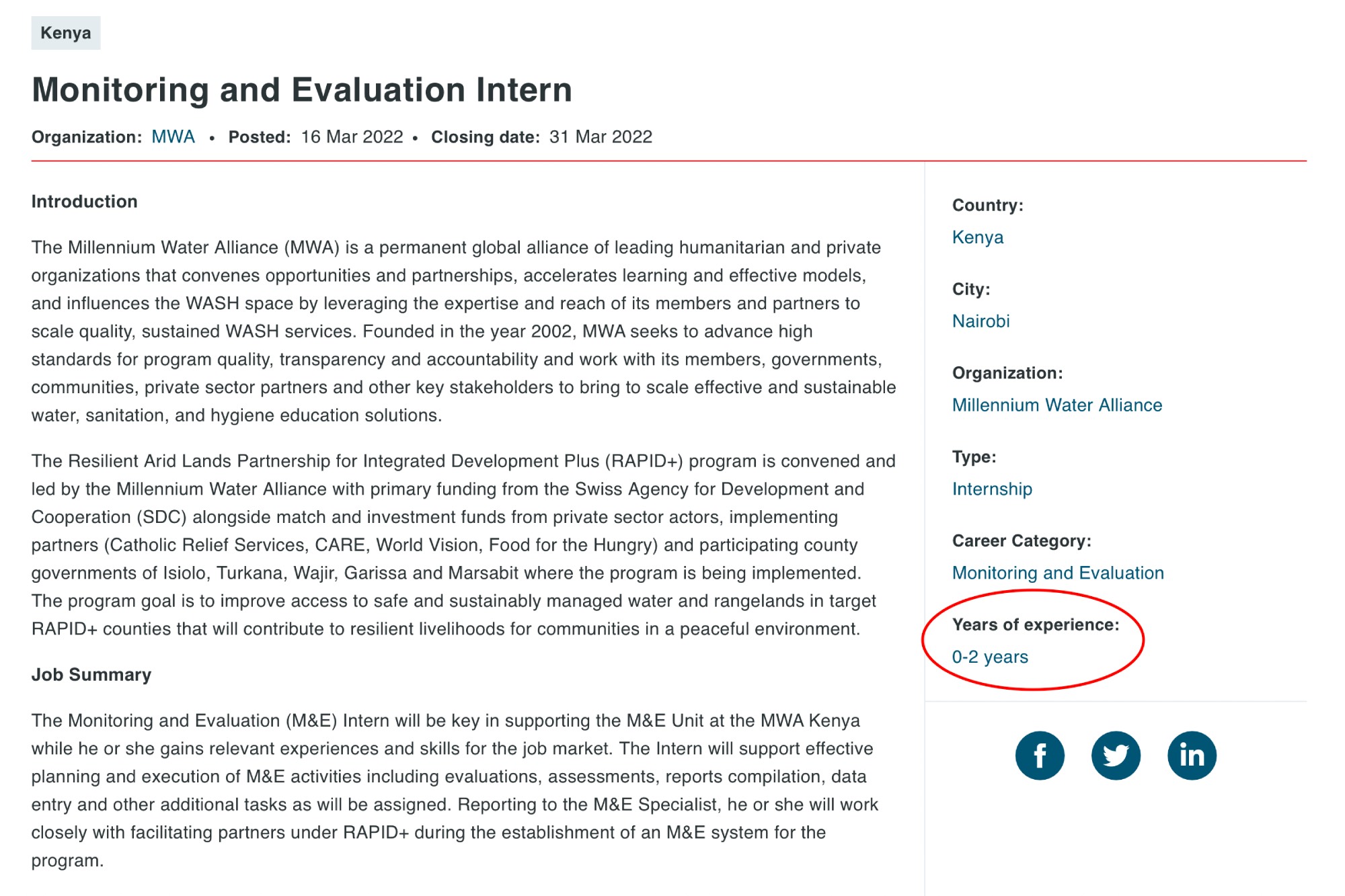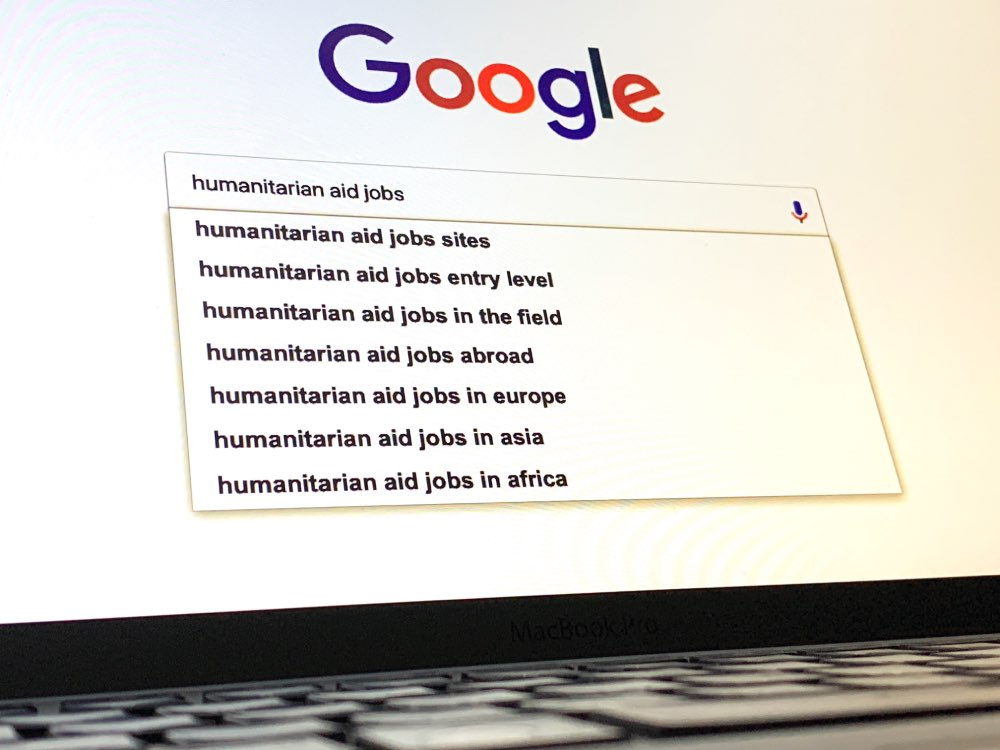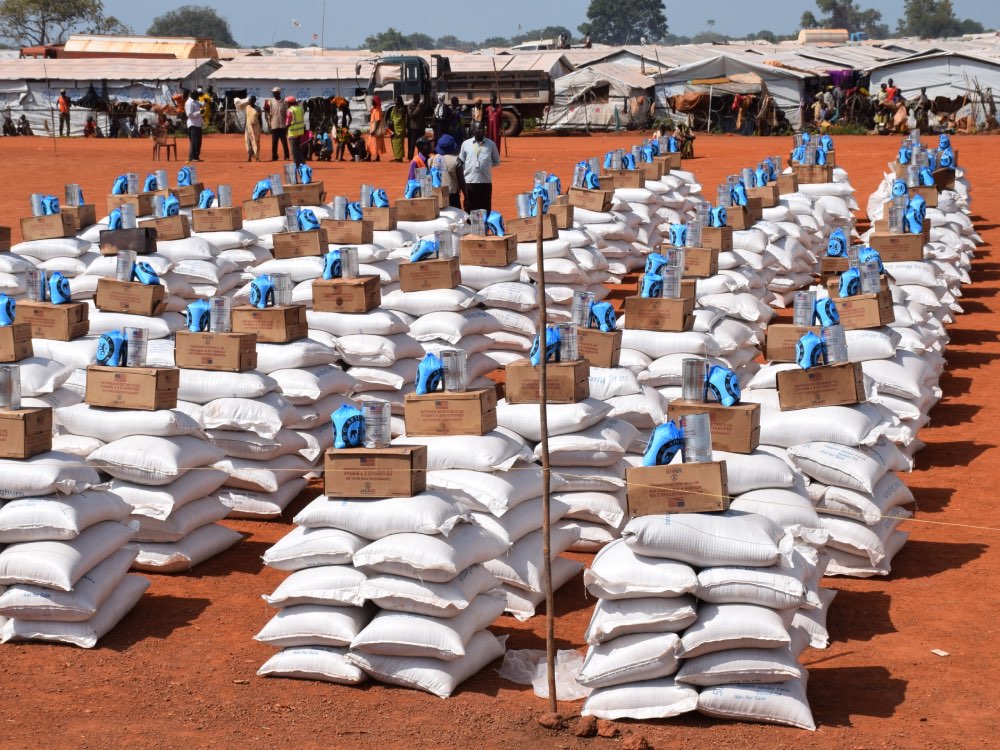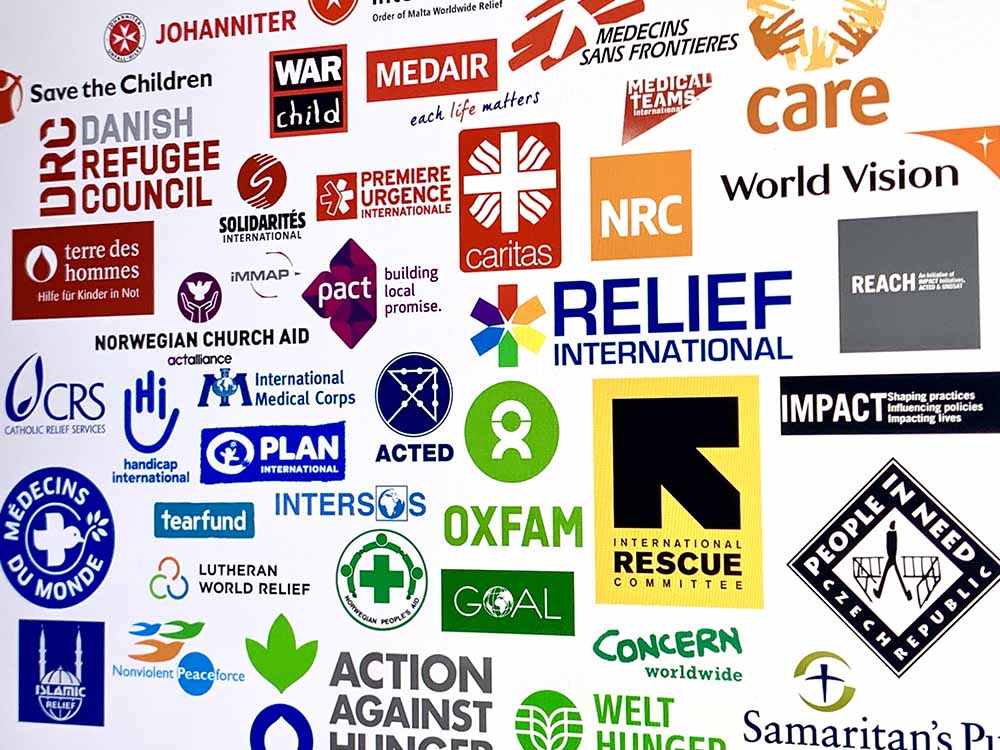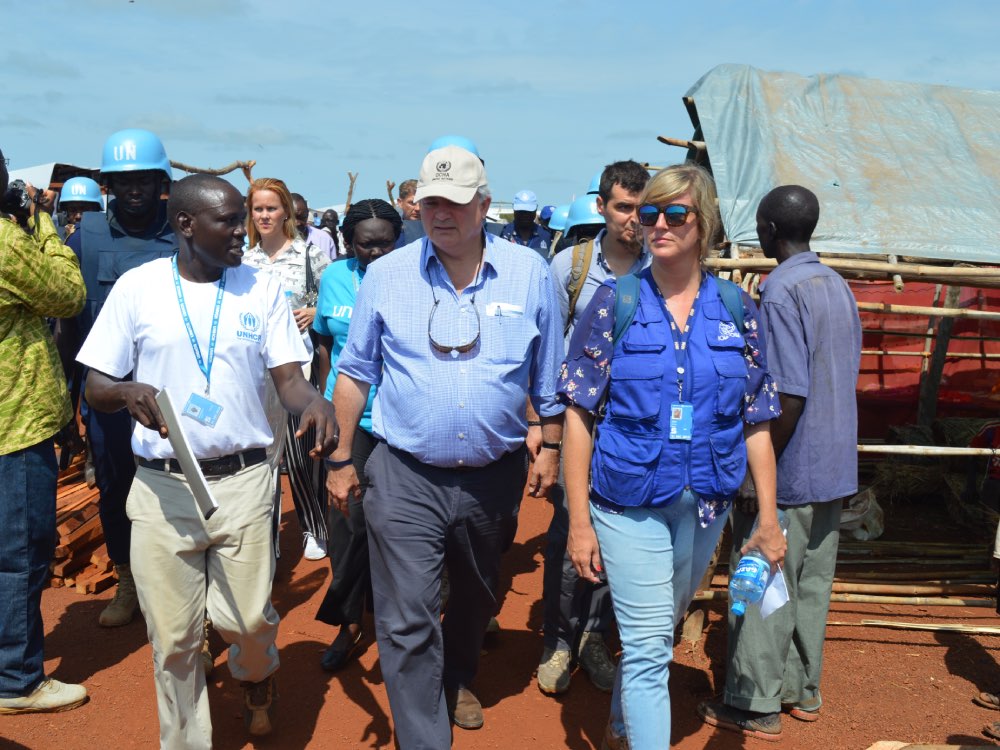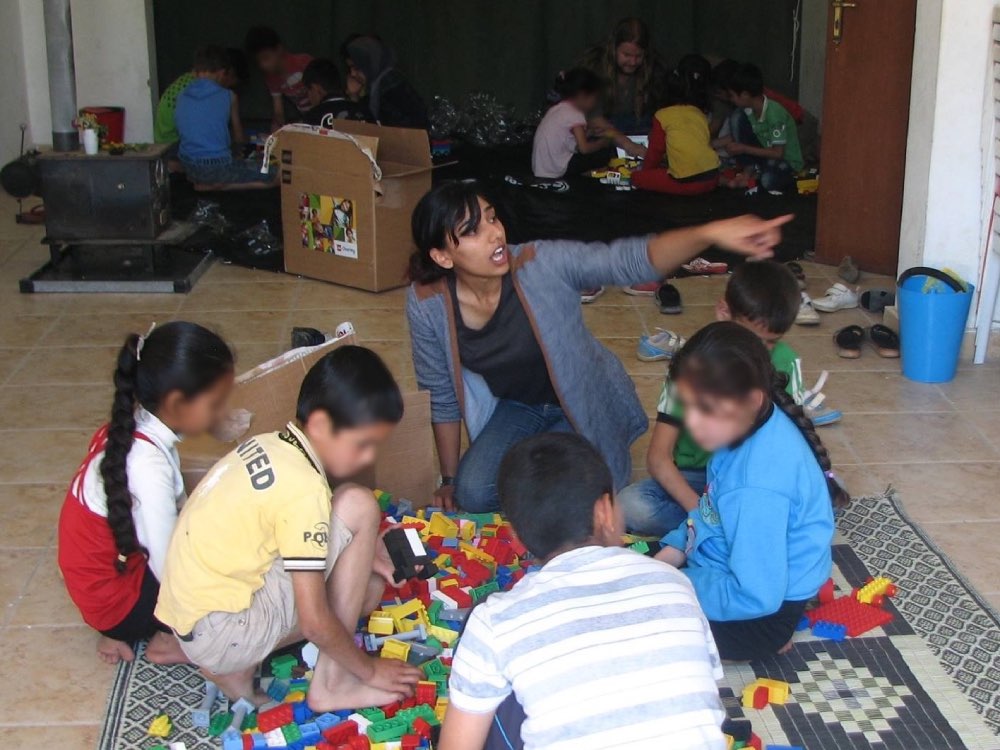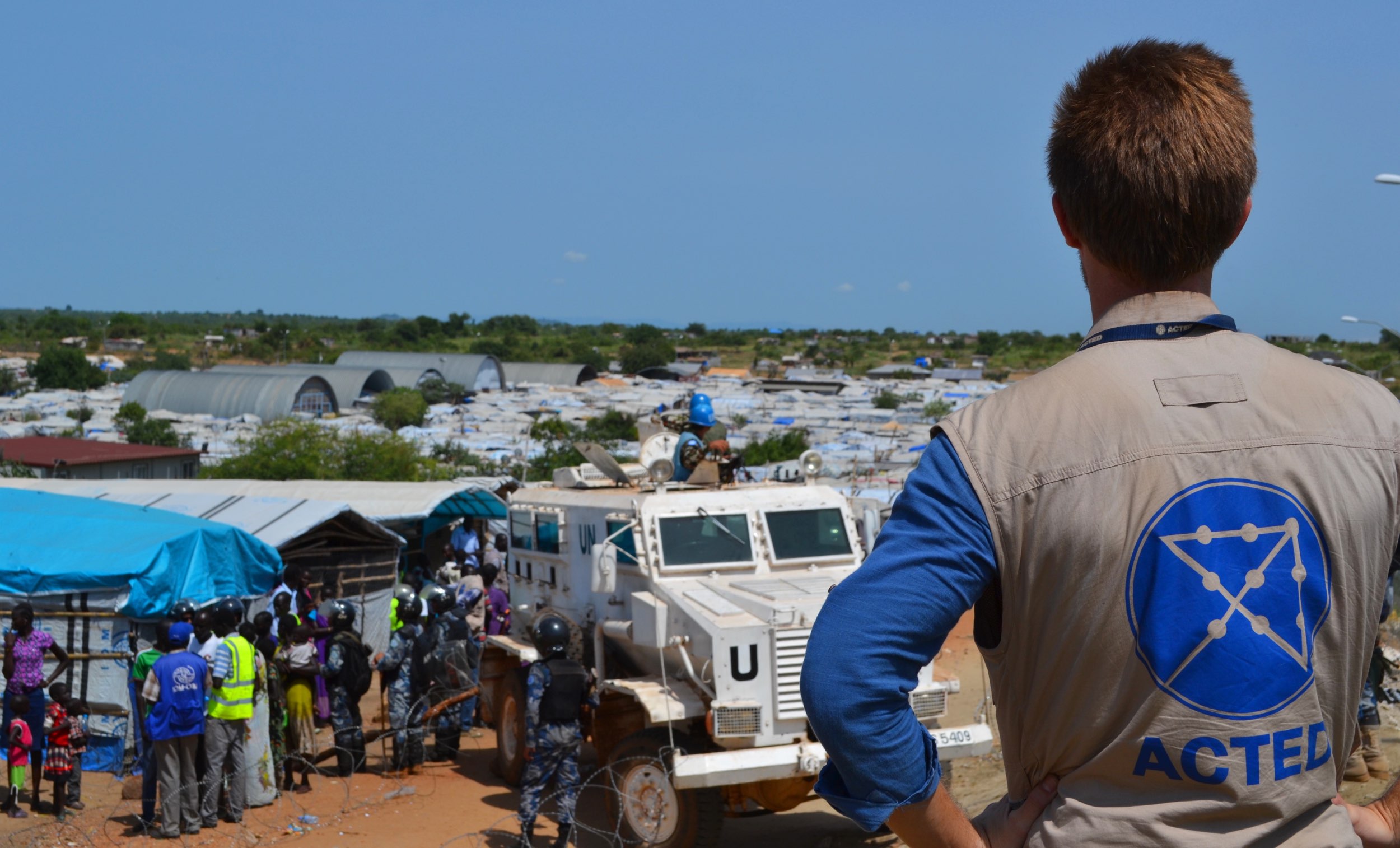
Jobs and organisations to target as an entry-level candidate
Don’t bother with the United Nations. Aim for NGOs that you’ve never heard of before.
So you’ve figured out where humanitarian jobs are advertised; you’ve polished your CV; and now you’re ready to fire off your first job applications. Immediately you notice that there are a lot of jobs out there. On an average day, ReliefWeb has over 3,000 open positions.
To which ones should you apply? That “Disaster Assistance Response Team” job with the US Agency for International Development sounds exciting! That “Camp Manager” position with the Danish Refugee Council could be your dream job. And that “Delegate” role with the International Committee of the Red Cross looks like it would impress your mother.
Like online dating, scrolling through the endless possible matches is enough to make you lightheaded. Unlike online dating, each right-swipe on a job application requires hours of tediously copy-pasting one’s CV into little boxes. Therefore a more selective approach is required.
Some vacancies are worth an application and others are not, especially for entry-level candidates. This article will direct you toward the job roles and the organisations which will offer you the best chance at true love landing your first job.
Nota bene
Before we begin, it is assumed that you are humanitarian job seeker with the following characteristics:
- You want to work in the field.
- You want to be challenged and given responsibility from the start.
- You know enough Latin to understand what nota bene means.
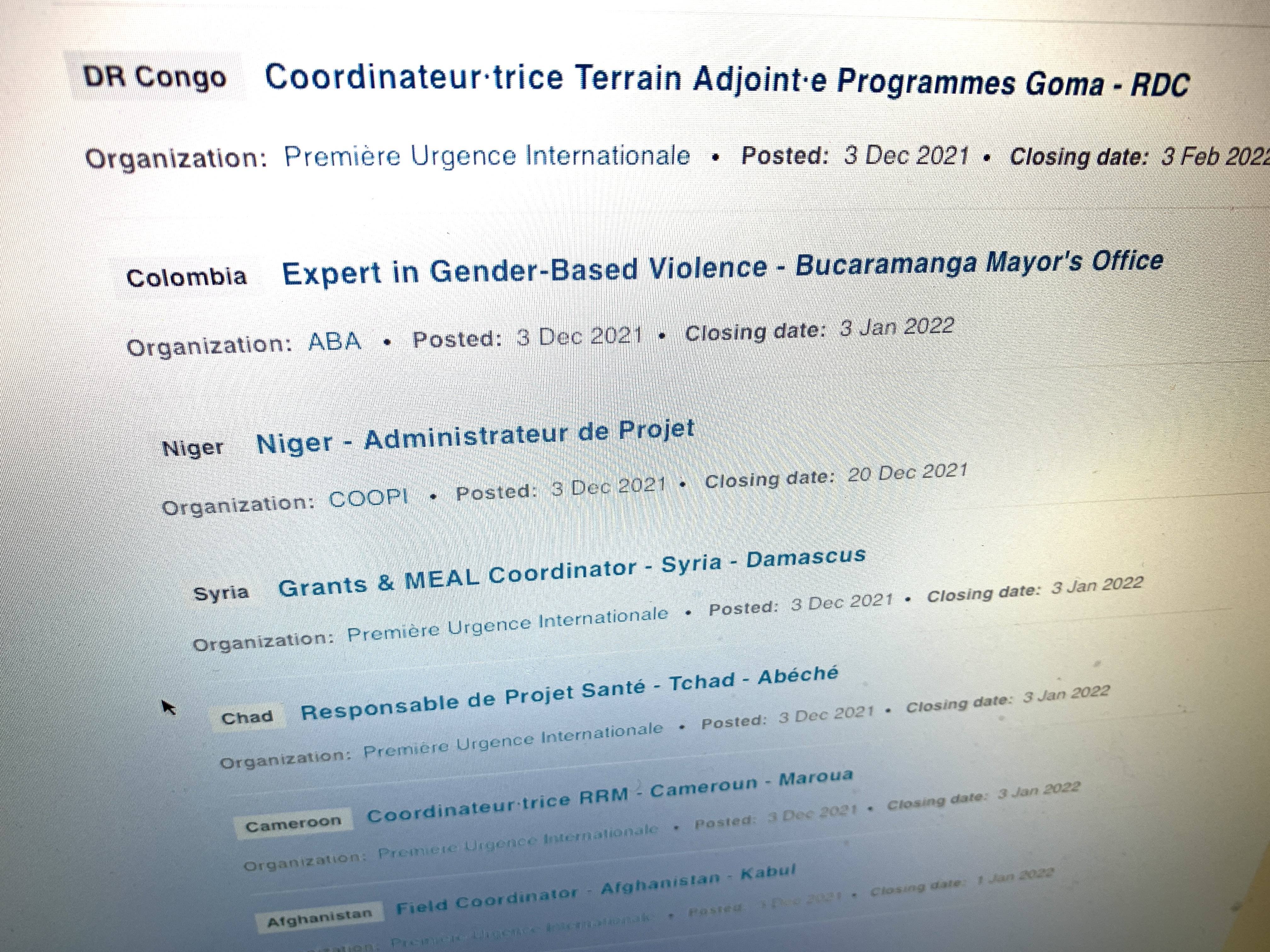
Roles to target
As an entry-level candidate, it goes without saying that you should be filtering by roles that require between 0-2 years of experience. In addition, you can look for words like “Assistant”, “Associate”, “Junior Officer”, or “Support Officer” in job titles. These types of roles will genuinely require minimal previous work experience. However, specific advice is the best advice, so let’s get specific:
If you are a fresh graduate from a university programme in international development or humanitarian aid, you emerge from academia with only a few employable skills. They are, most likely: the ability to write well in English, and the ability to digest and analyse large amounts of information. Luckily for you, there are many entry-level positions that require exactly these skills, and these positions exist in every country with every single NGO and UN agency. They can be separated into four categories:
- Project Development: Also known as Grant Management or Donor Relations. This category is responsible for writing proposals for new projects and submitting them to donors.
- Reporting: Every humanitarian project generates a mountain of reports: quarterly reports, interim reports, annual reports, final reports, and more. Somebody has to write them, and it’s usually the junior staff (that’s you!) who shoulder this burden.
- Monitoring and Evaluation: Known in shorthand as “M&E”. Known in unnecessary longhand as “MEAL” (Monitoring, Evaluation, Accountability and Learning). Regardless of the acronym, ongoing projects need to be monitored to ensure that they are on track, and completed projects should have a comprehensive evaluation to assess their success or failure. Staff who do monitoring and evaluation work usually conduct interviews with the people who received humanitarian assistance; they summarise the conclusions of their findings; and they write reports. If these skills seems strangely similar to the ones used by postgraduate students to conduct research and write academic papers, you are right. You are probably already qualified for some entry-level M&E jobs.
- Communications: Or “Comms” for short. If you have a creative streak, Comms might be right for you. This department promotes the humanitarian achievements of the organisation through social media posts, websites, press releases, videos, and more.
- Project Development: Also known as Grant Management or Donor Relations. This category is responsible for writing proposals for new projects and submitting them to donors.
Getting an entry-level job in one of these four areas is how most aid workers start their career. But just because your first job is doing reporting or fundraising does not mean you will be stuck doing it forever.
By designing humanitarian project proposals, drafting reports, or writing evaluations, you will gain expertise in one or more of the humanitarian technical specialisations. After a year or two, you can use this newly-gained technical knowledge to springboard into a new job where you are the person actually doing the project implementation in the field, rather than just writing about it in the office. This is the typical early career path for many aid workers.
As a final note, to increase your chances, apply for these types of roles in countries with difficult living conditions. Think Yemen over Jordan, Chad instead of Kenya, Afghanistan rather than Kyrgyzstan. In challenging locations there is always a high turnover rate. People burn out and leave. The good news for you is that as managers leave, their old jobs open up, the junior staff get promoted, and their newly vacant positions at the bottom of the organigramme also open up – ripe for your picking.
Organisations to target
Now that you know which roles to target, we must consider the same question with regards which organisations to focus on.
In a nutshell, train your sights on international NGOs that you’ve never heard of before. You want to aim for organisations with low brand awareness, lame logos, and clunky websites. If you have to explain their embarrassing name (Tearfund) or their unwieldy acronym (A.C.T.E.D.) to your family, it’s a good sign. These are the ones that will hire fresh graduates and send them – meaning you – straight to the field.
The salaries at these NGOs can be shockingly low but they will hire you and give you substantial responsibilities right from the start, even if you have no idea what you’re doing. From an ethical perspective, I acknowledge that there is room to critique giving a 22-year-old with no practical experience the authority to implement an aid response operation. But from a job-seeker perspective, these organisations present plum opportunities.
In addition, because the pay is low and the conditions are rough, turnover is high and you will be promoted quickly if you stick around. Not to mention, all of your colleagues will also be young and motivated like you, and the working environment (and the weekend parties) will be lively.
A sampling of a few such entry-level international NGOs includes:
- ACTED
- InterSOS
- Nonviolent Peaceforce
- People in Need (PIN)
- Première Urgence International
- REACH
- Relief International
- Solidarités International
For a full catalogue of all entry-level orgs, check out our full list of humanitarian NGOs.
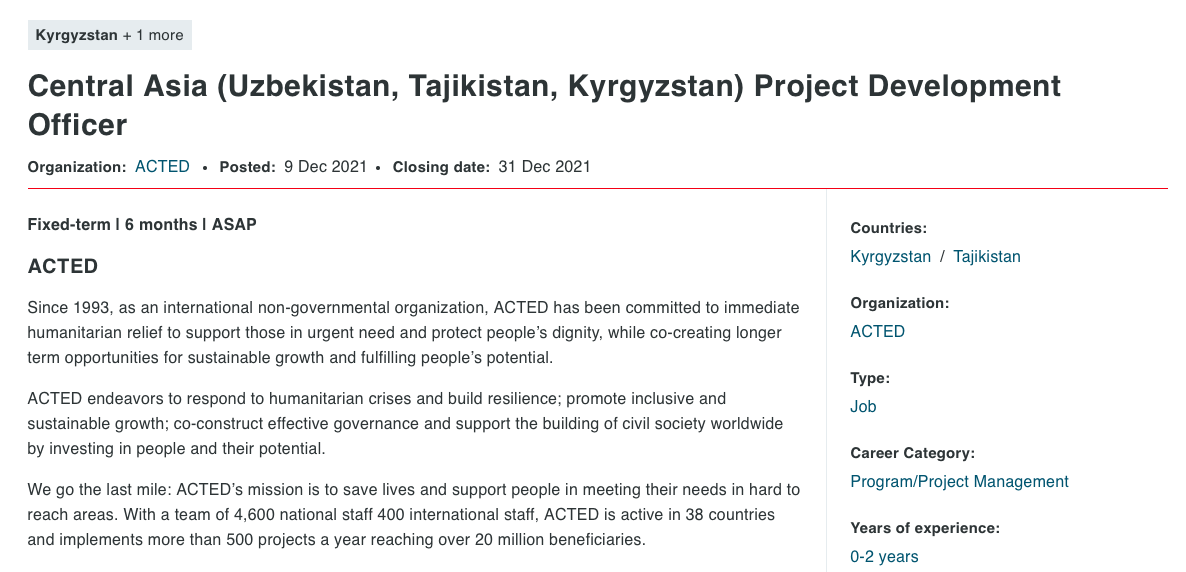
Roles to ignore (for now)
To the uninitiated, some vacancies might seem like ideal roles for entry-level candidates even when in reality then are not.
Avoid positions with “National” in the title. These jobs may seem like great entry-level opportunities but your application will not be considered unless you are a citizen of that country. There is often no flexibility on this point.
If you are a truly entry-level candidate, don’t waste your time applying to jobs that have words like “Specialist”, “Manager”, “Advisor”, or “Coordinator” in the title. Sometimes these vacancies are lumped into the “0-2 years of experience” filter on job aggregator sites, but it’s very rare to see a specialist or a manager hired who actually has zero experience.
Don’t focus on jobs in headquarters. Usually these vacancies are extremely competitive, even for internships. Unless you have a connection inside the organisation, your chances of success will be slim. In fact, steer away from regional hubs like Nairobi, Amman, Singapore, and the like if you want to give yourself an extra competitive edge.
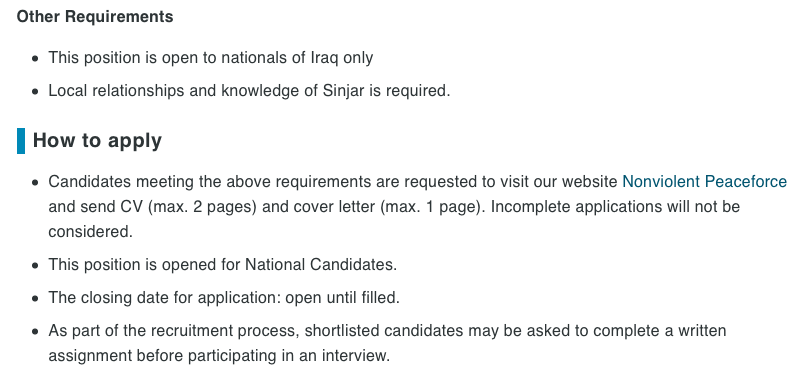
Organisations to ignore (for now)
The United Nations’ myriad humanitarian agencies – from UNICEF and UNHCR to FAO and IOM – may be the most universally recognised humanitarian actors, but I do not recommend targeting them for your first job. Entry-level UN positions are rare, and those that do exist are extremely competitive. Moreover, an entry-level UN job will likely situate you far from the field. You will be writing the tweet about the report about the field operation. A UN humanitarian agency can be a very rewarding place to work, but typically not at the lowest rung. Finally, many UN jobs that you see posted online are already reserved for internal candidates, even if this is not explicitly stated in the advertisement.
Even within the aid industry, the International Committee of the Red Cross is considered the créme de la créme (which is French for “very creamy”). They have their own special mandate, huge fleets of aircrafts and vehicles, and perhaps the world’s most historic humanitarian logo. And therein lies the problem for you: as the best of the best, the ICRC only hires experienced candidates and – unique among humanitarian agencies – requires working proficiency in two languages. Bookmark their careers page for a later date when you have more experience (et quand tu parles français).
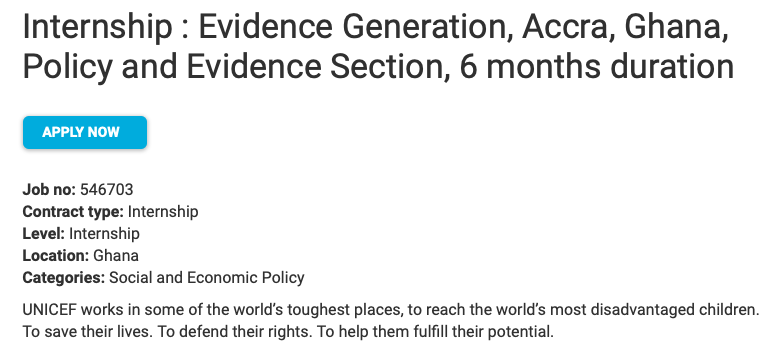
Final caveat
Caveat is a Latin word that means “don’t blame me if things don’t turn out the way I promised they would”. At least that is how I use it when writing reports to donors.
The point is: You might get an internship with a United Nations agency at headquarters and love it. You might get repeatedly left-swiped by all the NGOs that I’ve advised you to Super Like.
The truth is that getting a job – any job – is an unpredictable blend of timing and luck. The suggestions in this article aim to maximise your chances and to minimise time-wasting applications. But don’t limit yourself. Apply to any job that looks exciting and for which you might be even partially qualified. The best part about being at the start of your career is that the possibilities are infinite.
January 2022
updated March 2022
RELATED POSTS
You could skip this article and just go to ReliefWeb. But why skip all the fun?
From medical assistance and food distribution to logistics and finance, your humanitarian career is shaped by your technical specialisation.
An unlucky number of true anecdotes, success stories, and lucky breaks.
Take a peek inside aid worker accommodation, from apartments and guesthouses to containers and, yes, tents.
Growing up in rural Sweden, the Red Cross delegate never aimed to be an aid worker. Now, at 33, he has built a career working with communities amid crisis and conflict.
The sheer number of aid organisations can be overwhelming. So we made a list. This is the definitive roll call of every major international humanitarian NGO.
The veteran Camp Manager explains why the job is among the most challenging in the industry. And why, after nine years, it’s also her favourite.
Hiring managers from across the aid industry give their advice on what makes a great CV and cover letter. However, they don’t always agree.
The Syria-based Protection specialist reflects on the power dynamics of aid and the privileged position that humanitarians often have in fragile countries.

